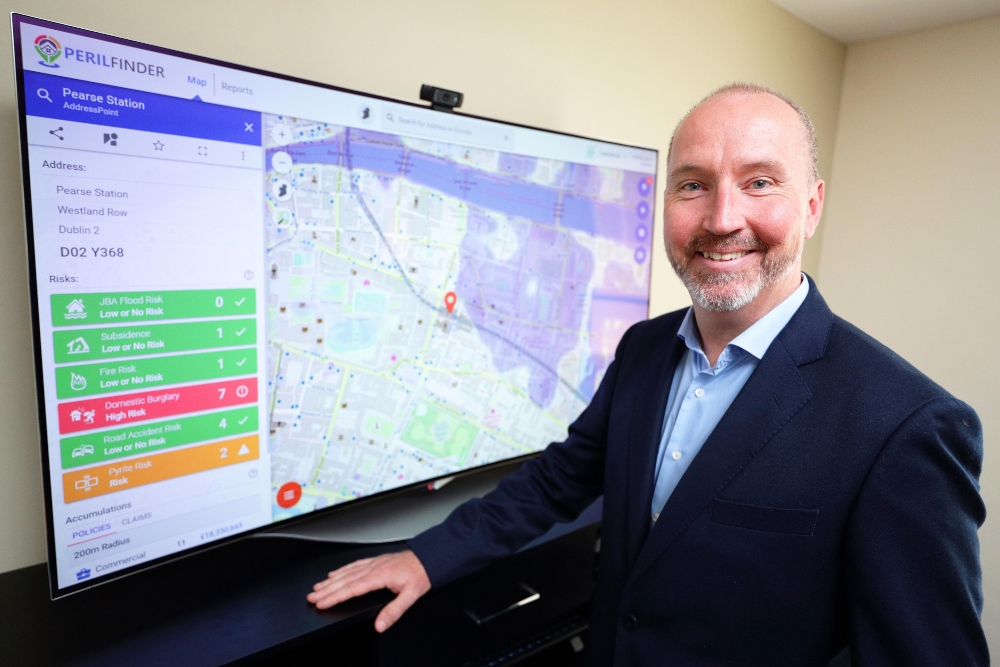Maeve O’Malley, is the founder of popular Dublin eateries Meltdown and Winedown. She shares her life and business lessons.
Tell us about your background, what journey did you take to arrive at where you are?
I have always worked in the Irish food industry. From cafes and restaurants as front of house to chef positions, also in the FMCG area as development chef and product commercialisation. I have always strived to own my own business having started two businesses before eventually being successful with Meltdown and Winedown.
“I think Meltdown is a great addition to the Irish food scene not just because customers are satisfied, but because the people who work here enjoy it”
Why are you doing what you are doing? What need are you meeting? What’s your USP?
Meltdown is famous for its epic toasties and delicious breakfast. Meltdown Hot Stuff hot sauce is an extension of the Meltdown menu available to buy in retail stores around Ireland. Whereas, Winedown serves moreish sharing plates and divine wines in a funky atmosphere. I try to bring people together over delicious memorable food, I design my spaces using local artists and suppliers and I always try to make it as unique and comfortable as possible. I think Meltdown is a great addition to the Irish food scene not just because customers are satisfied, but because the people who work here enjoy it. If they are here on a stop gap year or want to progress their careers within the food industry Meltdown/Winedown can provide those opportunities to them.
How did you fund and start the business and what are your growth plans?
I started my business with a business loan for €57,000. I quickly learned that this was not enough money to get a lease and fit out a shop, so I built up Meltdown as temporary pop ups around Dublin before eventually building up enough of a good reputation and history to get my current city center locations. In terms of expansion, I am currently in the middle of fitting out a 2,000 square foot production unit just off Cork Street. My aim for this space is to be in a position to cater for offices, and other businesses. I also hope to be able to seamlessly open future Meltdown outlets around Dublin.
“I’m a stereotypical entrepreneur so I don’t shy away from risk and I’m pretty resilient!”
What are your key skills and qualities that set you apart?
I have a vast amount of experience in different areas of the food industry which is a huge bonus as I have seen the inner workings of different types of food businesses. I’m also a stereotypical entrepreneur so I don’t shy away from risk and I’m pretty resilient!
What (or whom) has helped you most along the way? Who was your greatest mentor/inspiration?
My husband has definitely encouraged me the most and made me feel like I was capable of doing anything. Before I met him my second cousin was a great source of encouragement and aspiration. I definitely aspired to be someone like her. She moved from rural Ireland to the States in her 30s and created an amazing life for herself and her family.
“Always have a contingency plan. It’s important to always have a flow of income from somewhere otherwise your finances are just depleting”
What was the greatest piece of business advice you ever received?
Work smart, not hard. When I ran my first business, The Tiny Teapot in Galway, I took pride in doing almost everything myself, and it was completely unsustainable. I was wrecked all the time and couldn’t keep on top of finances and marketing. Since then, I have learned to delegate tasks and it’s given me the opportunity to grow my businesses.
What circumstances/qualities/events can mark the difference between success or failure in life or business?
Always have a contingency plan. It’s important to always have a flow of income from somewhere otherwise your finances are just depleting.
“The most challenging aspect of growing is risking what has already been built for the hope of better”
What was the most challenging aspect of either starting or growing the business?
The most challenging thing for getting started was getting finance and a lease, both are really difficult in Ireland. The most challenging aspect of growing is risking what has already been built for the hope of better. I have found that although growth increases turnover, initially it decreases profits.
How did you navigate your business through the pandemic and what lessons did you learn?
For me, I grabbed every opportunity that came my way. I expanded into different revenue streams and a contingency plan if I wasn’t able to keep the shop open.
How has digital transformation been a factor in your scaling journey and do you believe Irish firms are utilizing digital technologies sufficiently?
I have adapted to many digital technologies … I can run my business on my phone. Initially, I set up everything myself, but now I really don’t have the time to optimise it all. I hired someone to make everything run smoothly and accurately.
“I’m inspired by all the wonderful women around me who have businesses of their own and who are all making it work”
If you were to do it all over again, what would you do differently?
So far I am happy with how everything is going and I’m glad it’s been a struggle to get here as I don’t think I would appreciate what I have otherwise.
Who inspires you in business today?
I’m inspired by all the wonderful women around me who have businesses of their own and who are all making it work.
“All my managers have been promoted from within and some staff have progressed to marketing and sales roles”
What advice/guidance do you give new hires and how do you nurture talent in your organisation?
The cafe/restaurant industry in Ireland is very precarious, but Meltdown is a growing business with lots of opportunities to advance – if that’s what they want to do. All my managers have been promoted from within and some staff have progressed to marketing and sales roles. I also tell my team that I want them to work hard and feel safe at work, so I am always available if there’s any issue they need to discuss.
What business books do you read or would recommend?
I haven’t read many business books, as I find they can be quite fluffy. I read the Business Post and The Irish Times and I’m often inspired by the articles written about what other businesses and business people are doing.
What technologies/tools do you use personally to keep you on track?
I use Xero, lightspeed, simple pay, plan day, Google docs, Hub Doc, Deliveroo, Deliverect, and Gmail. The business spends almost €20,000 per annum on subscriptions which are used to keep track of all aspects of the business. Most of the systems integrate with each other and are cloud-based so I can access everything on my phone. I then organise myself using email and Google calendar. The business is very organised as all the systems and managers are in place. However, personally, I could be a lot more organised!
What social media platforms do you prefer and why?
I have had great coverage using Instagram in the past but lately I’m finding it’s much harder to get results through it. Starting off four years ago I had a lot more time to spend on creating content and I was always in the shop so it was much more personalised. It looks like everything is moving towards TikTok now and it’s a whole new platform that I’m trying to get used to.
What are your thoughts on where technology overall is heading and how it will apply to business generally and your business particularly?
I think there are some things that apps try to solve that are much easier solved using excel. Technology is great but if it’s not being constantly updated and kept accurate it’s a waste of time. It’s important to weigh up what is enough to get by on and what it is costing time and money wise to have all these systems working properly.
Finally, if you had advice for your 21-year-old self – knowing what you know now – what would it be?
Keep trying, and eventually, you’ll get there.





